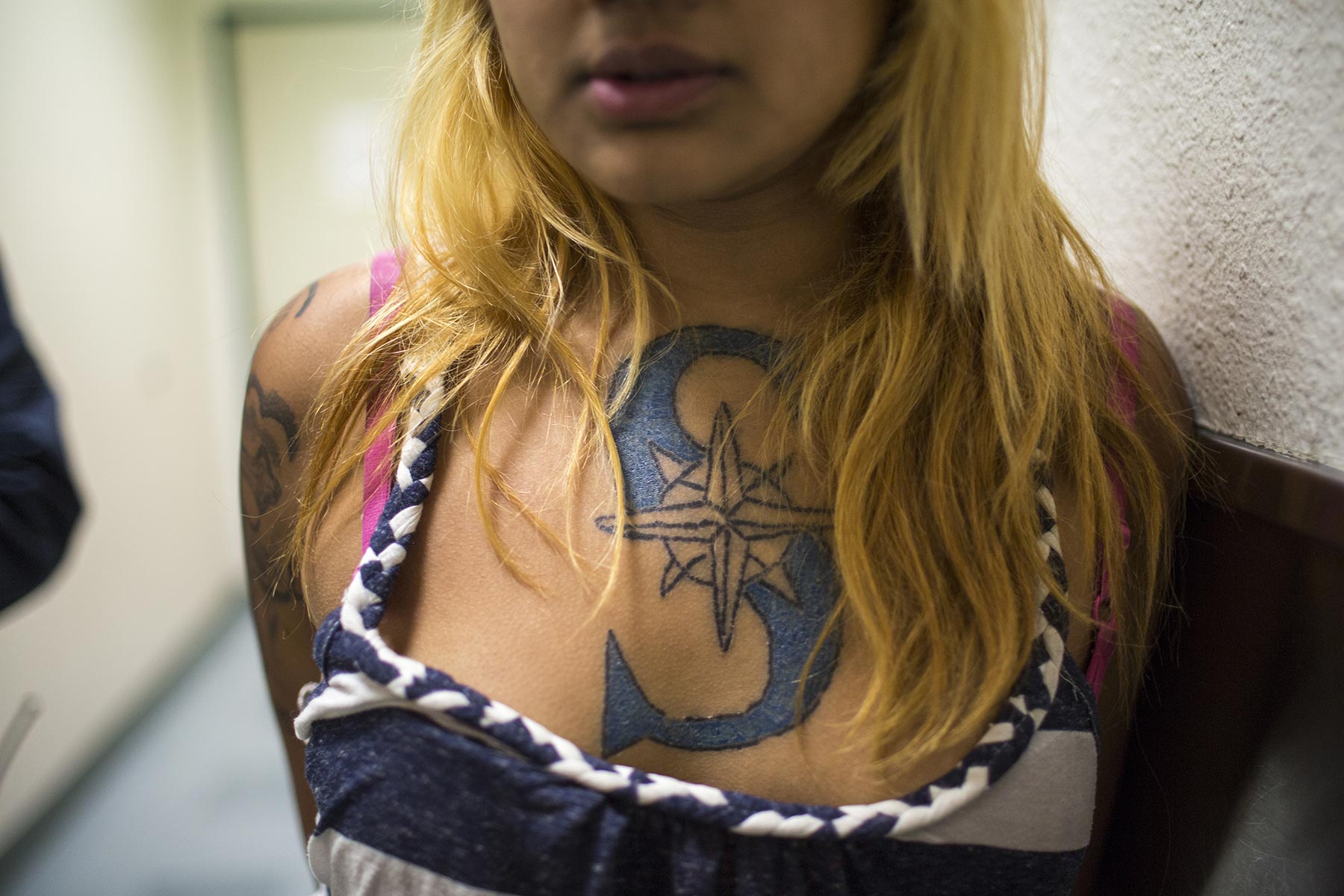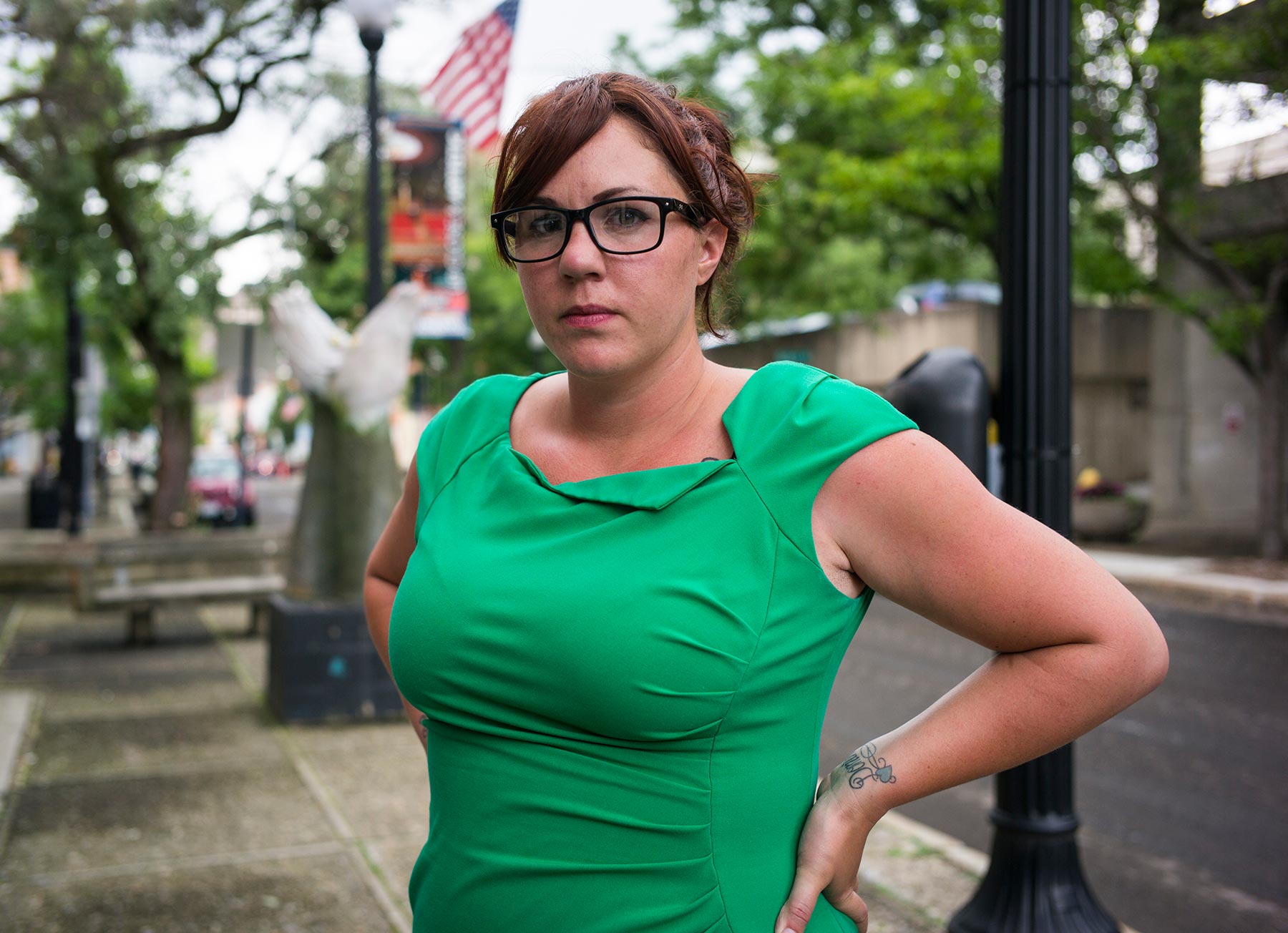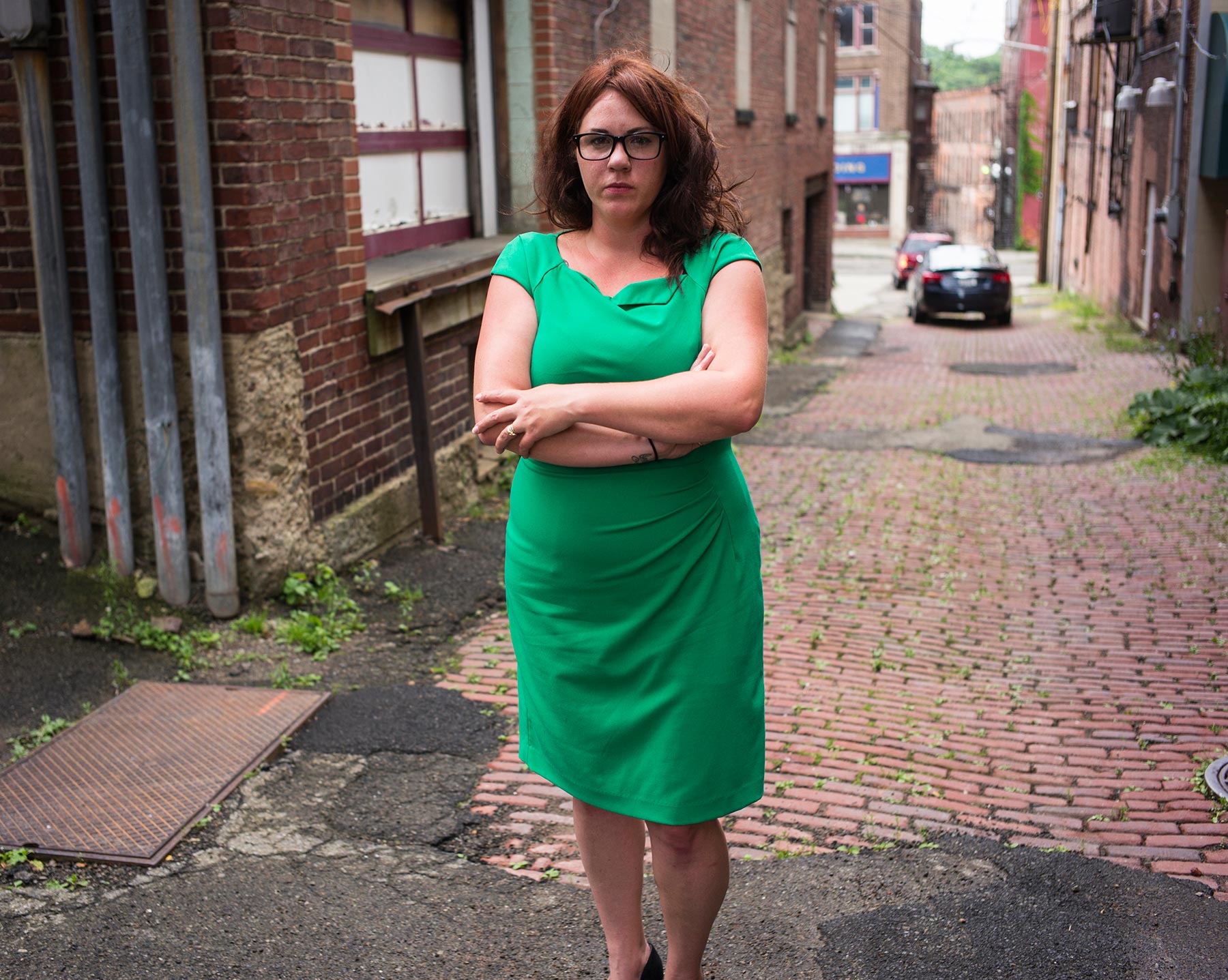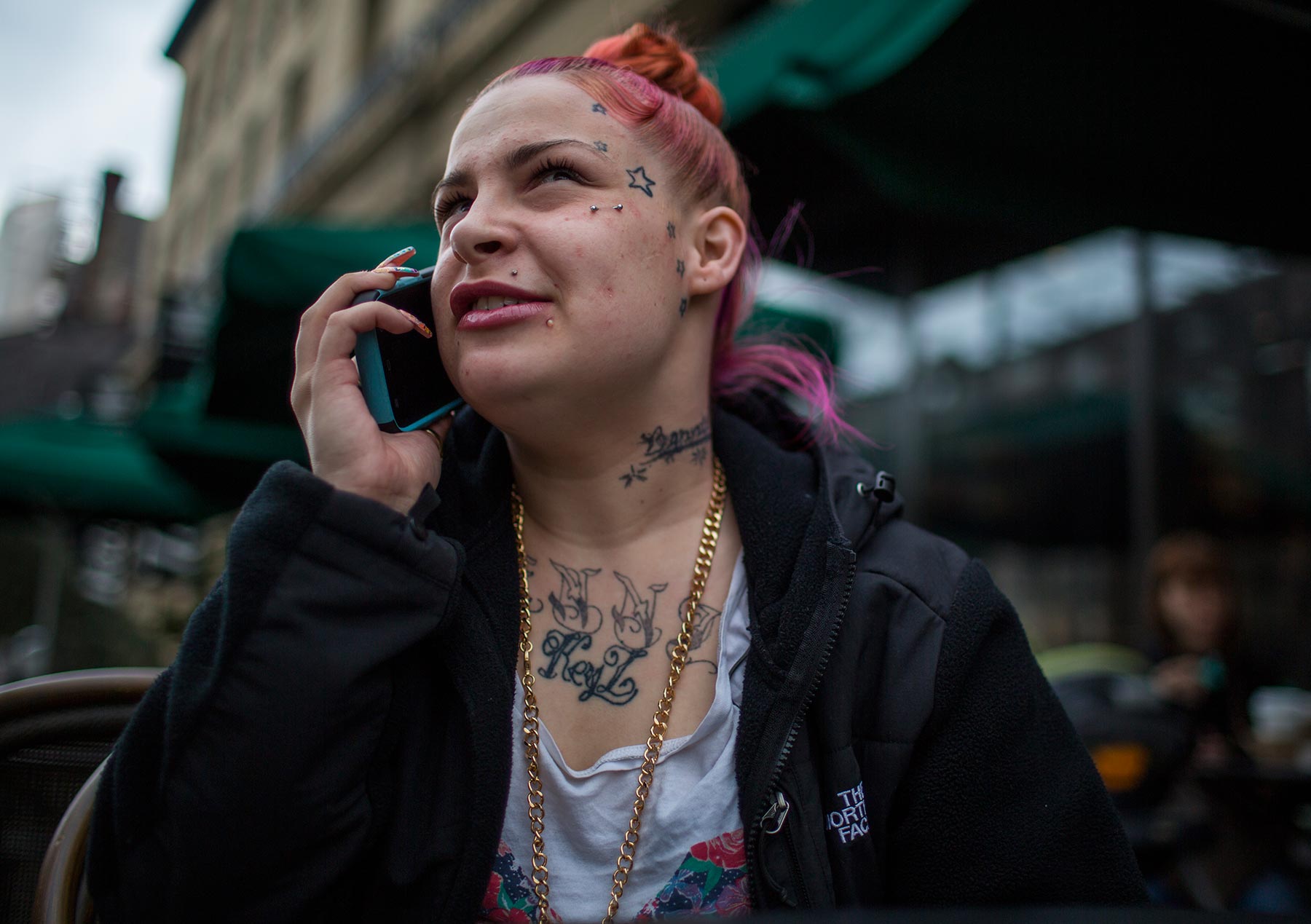
From victims to survivors: The girls speak
Al Jazeera America talks to women who were exploited as teens on the streets of DC
Series
This is part three of a seven-part series about sex trafficking.
The two female cops following Liz Kimbel did not have kind words for her, back when she was a 15-year-old girl walking the streets of Washington D.C..
“‘Bitch,’ ‘whore,’ ‘you little slut,’” said Kimbel, now 26, with a sigh, describing what the women called her the first time she was arrested. “That was the worst experience I ever had with law enforcement.”
She spent the night in a police wagon, handcuffed to a 5-year-old girl who was out past curfew and did not know her address.
“I was so angry about that little girl,” said Kimbel. But she had problems of her own.
A Romeo pimp — one who promises romance before turning brutal — named Jazzy was running her on the streets of D.C. The first time she was arrested, she said, she was held for 12 hours and released on probation.
Somehow, the horrific details of her exploitation didn’t register with the system.
Kimbel was turned out at the age of 14 by a pimp named T, who found her in the parking lot of a gas station in College Town, Maryland. She was raped by a friend at the age of 12. This happened shortly before her father, a controlling alcoholic, died, leaving her with her waitress mother and three siblings.
The combination of the trauma from the rape and her father’s death sent Kimbel, who was, by her description, “still very much a child,” into a tailspin of attention-seeking behavior — shoplifting, taking drugs and drinking. She felt as if she were to blame for the rape.
“My mother’s favorite thing to say was, ‘Self-inflicted injuries get no sympathy,’” said Kimbel.
When she met T, she said, “he had a couple of girls with him and asked me and my friends if we wanted to go to a party.” That party, at a motel across the street from that gas station, ended up being six weeks of being locked up, forced to have sex with a string of random men and staying high to cope.
“I was so sure that someone would tell my mother where I was. I was six blocks from my house,” said Kimbel. The gas station was visible from her home.
She turned 15 in that motel room, and one day, after waking up “with foam and blood” all over her as a result of excessive cocaine use, she managed to sneak out, going by taxi from friend to friend before ending up at her uncle’s home, too angry to go to her mother.
Just as well. Her mother had packed up and moved to Silver Spring, Maryland, while she was missing — a detail that Kimbel, now a married mother of two — can’t get over.
Her uncle took her to her mother, and things did not go well. So when Jazzy showed up and asked her to run away to New York, Kimbel was ecstatic.
They never made it to New York, because Jazzy drove to D.C. and had her walk the streets there, earning money for him.
It wasn’t until her second arrest, a few months later, that Kimbel came into contact with the right officer, the kind of cop who had the sensibility to deal with a very troubled, exploited kid.
“A lot of us have experienced rape by a cop. A lot of us have experienced traumatic arrests. So to have a cop stand there and say ‘No matter what, I’ll be here to help you’ is what makes the difference,’” said Kimbel.
Lisa Thurau, the executive director of Strategies for Youth, based in Cambridge, Massachusetts, said that the failure to identify a minor who has been commercially exploited for sex is “extremely harmful. The impacts are both short term and long term. When “officers sink to that level” — insulting and berating a minor rather than protecting her — “she’s going to be scorned” and not feel she can seek help.
Andrea Powell, the executive director of FAIR Girls, which is based in Washington, D.C., and helps victimized and trafficked girls, said that most of the girls who end up being targeted by pimps come from troubled households or have been abused, often sexually.
Ashley, who was 13 when she was first arrested on prostitution charges in Baltimore, was taken from her mother soon after birth because, she said, her mother had a drug problem.
After her father died, she was put in a foster home.
“That kind of fucked my head up a little bit,” she said in an interview two years ago. Al Jazeera has kept track of her via her contact with FAIR Girls and Powell for the past year.
“It’s just sad. You’ve got little fucking girls doing this shit, sleeping with old-assed men,” said Ashley, who was still “in the life” at the time. “I’ve done it, but that shit is not where it’s at.”
Her sense of self-worth did not improve after she left her pimp and starting working the streets on her own. “I might sit here on the outside and think that I look all good, but on the inside, I feel like shit. You sit here and talk about it, and you just think about it, and it’s like, ‘This is really what I do?’ This shit is sad,” she said.
“When I was locked up, someone asked me, ‘Where do you see yourself in five years.’ I can honestly say I don’t.”
But that was then. Ashley dropped off the radar for a while, touching base with Powell only periodically. She is currently off the streets and is expecting her first child.
Getting girls like Ashley the support they need, said Thurau, needs to be the mandate of not just one agency or another; what’s needed, she said, is a comprehensive approach. “Until the community changes that perspective, I don’t think the police will. And the communities really have to clamor and collaborate and demand,” she said.
“We should be dumping resources on 12-to-14-year-olds, surrounding them with love and attention so that recruiters, gangs and exploitation and trafficking don’t have a chance in hell,” she said.
She described the army of adults who set a path to court and solicitation charges for an exploited teenage girl and asked, “Where were the 12 adults at the front end?”



